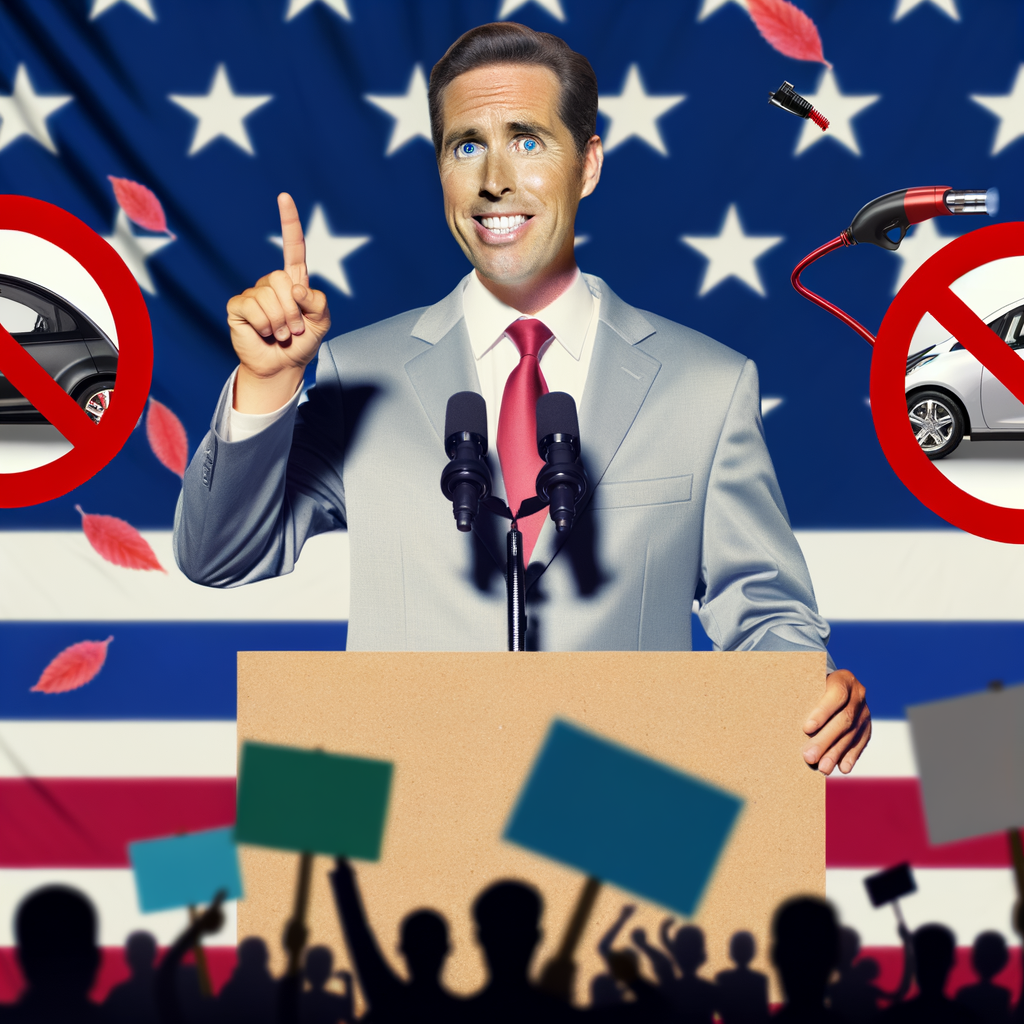Trump Vows to End Nonexistent EV Mandate on Day One
Former President Donald Trump, in his perpetual quest to undo any and all accomplishments of the Biden administration, has set his sights on a novel target: a nonexistent federal mandate requiring all Americans to drive electric vehicles.
Speaking at a recent rally, Trump thundered about the supposed mandate, calling it a “job-killing” policy that would leave hardworking Americans at the mercy of “foreign countries” that produce EV batteries. He pledged to “terminate” the mandate on the very first day of his second term, eliciting cheers from the crowd.
A Phantom Menace: The EV Mandate That Isn’t
There’s just one problem: there is no federal mandate forcing Americans to buy electric cars. While the Biden administration has set ambitious goals for transitioning to electric vehicles, including a target of having EVs make up 50% of all new car sales by 2030, these goals are non-binding.
The administration’s efforts have focused on incentivizing EV adoption through measures such as:
- Tax credits for EV purchases
- Funding for charging infrastructure
- Support for domestic battery production
However, nowhere in these policies is there a mandate requiring individuals to ditch their gasoline-powered cars for electric ones. The choice of what kind of car to buy remains firmly in the hands of consumers.
Fueling the Flames of Misinformation
Trump’s misleading claims about a federal EV mandate, while demonstrably false, serve a specific purpose: to stoke outrage and fear among his base. By painting a picture of an overreaching government forcing Americans to abandon their beloved gas-guzzlers, Trump is tapping into a vein of skepticism and resistance towards EVs, particularly in rural areas where concerns about range anxiety and charging infrastructure persist.
Furthermore, by linking EVs to “foreign countries,” Trump is playing on economic anxieties and nationalistic sentiments, implying that a transition to electric mobility would weaken America’s standing in the world. This rhetoric resonates with his supporters who view globalization and reliance on foreign supply chains with suspicion.
The Reality of EV Transition
While Trump may choose to ignore it, the transition to electric vehicles is well underway, driven by a multitude of factors beyond government policy:
1. Climate Change Concerns:
As the urgency of climate change becomes increasingly apparent, more and more consumers are seeking ways to reduce their carbon footprint, with EVs presenting a viable alternative to traditional combustion engine vehicles.
2. Technological Advancements:
Rapid advancements in battery technology are making EVs increasingly affordable and practical, addressing concerns about range and cost that have previously hindered widespread adoption.
3. Market Forces:
Automakers around the world are investing heavily in electric vehicle development and production, flooding the market with a growing array of compelling EV models to suit diverse needs and budgets.
The Dangers of Disinformation
Trump’s perpetuation of the myth of a federal EV mandate is not merely an example of political posturing; it represents a dangerous trend of disinformation that undermines public trust and hinders progress on critical issues.
By spreading falsehoods about EVs and the policies surrounding them, Trump is not only misinforming his supporters but also potentially discouraging them from considering electric vehicles, even if they might be a good fit for their needs and values. This misinformation campaign could ultimately slow down the transition to cleaner transportation, with negative implications for both the environment and the American economy.
Moving Forward with Electrification
Despite the roadblocks erected by misinformation and political maneuvering, the momentum behind electric vehicles is unlikely to be derailed. As technology continues to advance, costs continue to decline, and public awareness of climate change grows, EVs will continue to gain traction in the marketplace.
Rather than clinging to the past and peddling falsehoods about nonexistent mandates, policymakers should focus on fostering a supportive environment for EV adoption through policies that incentivize innovation, expand charging infrastructure, and ensure a smooth and equitable transition to a cleaner transportation future.



